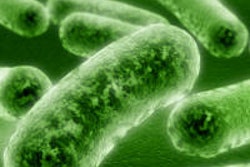Could a drug made of a protein the human body produces become a new weapon against periodontitis and systemic inflammatory conditions such as atherosclerosis and rheumatoid arthritis?
The protein Del-1 was able to inhibit bone loss associated with periodontitis in mice, according to a new study led by researchers from the University of Pennsylvania (Penn) School of Dental Medicine and published in Science Translational Medicine (September 30).
The researchers tested Del-1 in a preclinical model of periodontitis. They reported that the protein significantly reduced both inflammation and tissue damage. There was also "significantly less bone loss," they added.
"When we compared Del-1 with a small-molecule inhibitor of neutrophil recruitment side by side, we found that Del-1 was much more effective at inhibiting bone loss," stated senior author George Hajishengallis, DDS, PhD, in a press release. "That suggested to us that Del-1 may have an additional mechanism to inhibit bone loss, perhaps by acting directly on the osteoclasts."
Dr. Hajishengallis is a professor in the department of microbiology at Penn Dental Medicine.
The study authors reported that since Del-1 is a protein produced by the human body, administration of a drug based on it would likely be safer for local inflammatory diseases than some of the alternative treatments.
"I'm convinced that this is a drug that could work in humans," Dr. Hajishengallis stated.



















